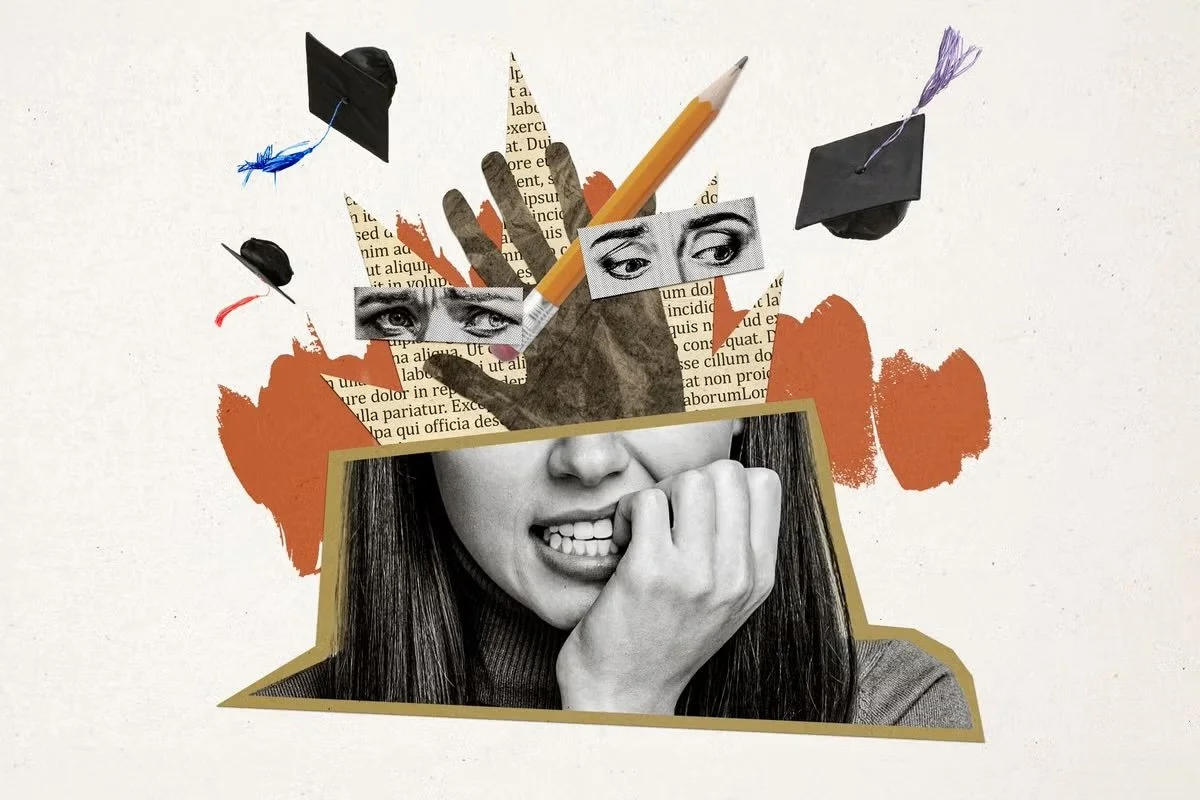Photo Credit: Getty Images
8/15/25
Town & Country’s Nicole LaPorte looks to LogicPrep Founder & CEO Lindsay to provide her expert insights on the unprecedented changes in college admissions this year.
New 529 Plan Flexibility Allows Strategic Planning for Tutoring and Test Prep
Under the current administration’s One Big Beautiful Bill Act, families can now use 529 plans beyond college tuition and room & board to cover K-12 educational expenses, including tutoring services and test prep for the SAT, ACT, and AP exams.
Designing After-School Time with the Future in Mind
In ParentCo., Lindsay dives into how after-school time plays a crucial role in shaping a child’s academic and personal development, starting as early as elementary school. These unstructured or semi-structured hours allow kids to explore who they are, develop passions, build confidence, and practice important life skills like collaboration, resilience, and problem-solving.
Photo Credit: ParentCo.
Behind the Scenes of an Extremely Complicated Year in College Admissions
Photo Credit: Getty Images
Town & Country’s Nicole LaPorte looks to LogicPrep Founder & CEO Lindsay to provide her expert insights on the complicated year of college admissions.
How to Build A Balanced College List
A thoughtful, balanced college list is essential to a successful college application process. College Advisor Angela shares how to build a mix of reach, target, and likely schools to increase your chances of having great choices come spring.
College Admissions Questions That Keep HNW Families Awake at Night
Lindsay’s recent article in Family Wealth Report addresses some key questions families face during the college admissions experience. The article covers topics many families are grappling with —from managing the stress of the process to navigating college choices with purpose.
The Power of Early Decision and When to Pursue it
As Early Decision has become more widespread, so has the mania over whether and where to apply ED. So how do you know whether this strategic admissions plan is right for you? Laura breaks down advantages, disadvantages and explains the variations and overall rationale behind it.
How to Get the Most Out of Teacher Recommendation Letters
One of the most overlooked yet powerful elements of the college application is the teacher recommendation letter. At LogicPrep, we encourage students to be intentional about forming relationships with their teachers for their own academic growth, as well as earning an authentic recommendation letter.
The New ACT is Officially (and Exclusively) Here
The new era of the ACT is here. ALL students planning to take the ACT in September 2025 or beyond will be taking the newer "Enhanced" ACT. Read LogicPrep’s insights on the new test and how to get prepared.
Summer Break: Filling Your Cup and Finding Purpose
Summer is here! College Advisor Erika shares how to rest and recharge in the summer, while also adding meaning during the slower “in-between” moments of each day. Read her tips and get ready to make your own list!
What Parents Should Know About the Slow Job Market for New Grads
Parent’s writer Beth Ann Mayer highlights the expertise of LogicPrep’s Founder & CEO, Lindsay Tanne, on preparing college students and their parents for the changing (and sometimes slow!) job market for new college graduates.
Photo Credit: Parents/Getty Images
What Parents of College-Bound Kids Wish They Knew Sooner
LogicPrep CEO & Founder Lindsay Tanne shares tips with ParentCo. on how parents can support college-bound students - with modeling future planning, encouraging exploration, and finding joy in the journey.
Authentic Personal Statements start with you, not AI
Struggling to get started on your Personal Statement? You're not alone. While it may be tempting to plug a prompt into an AI tool, it could hurt the authenticity of your narrative and put your application at risk. In our latest blog post, we share strategies to spark ideas (the old fashioned way!) and just get started.
LogicPrep's 2025 Summer Reading List
Welcome back to summer! It’s time to pick up a new book for your summer travels, camp, or just for curling up on the couch. We hope you find one — or eight — that you love!
What’s Next? Leaning Into Opportunity After Making Your College Decision
May 1st, the national deadline day for college acceptance decisions, can bring mixed feelings for many hopeful college applicants. Lauren discusses why fully engaging in opportunities you have is the greatest path to success.
Introducing the College Transition Package
You got into the school of your dreams, now what? Getting accepted to college is a huge milestone, but it can also feel overwhelming. With endless to-do lists, many families don’t know where to start. That’s where LogicPrep can help with our new College Transitions Package. Learn more!
Making the Most of Your High School Years
In the podcast episode “Making the Most of Your Teens High School Years”, Lindsay unpacks the college admission process with Christina Young, focusing on how parents can support their high schools through the process, including starting early to reduce stress.
Navigating College Decisions: Lindsay Shares Expert Advice on FOX 5 NY
Now that admission decisions are out for the Class of 2025, FOX 5 NY News invited Lindsay to share her expert insights on their evening segment! Watch the full interview and learn what she shared regarding: choosing the best fit college, how to handle disappointment, tips for navigating financial aid packages, and key admission trends from this year.
Congratulations to the LogicPrep Class of 2025!
In another competitive college admissions year, our students rose to the challenge - bringing passion, optimism, and their unique selves to every step of their journey - resulting in an impressive list of acceptances to over 150 universities in the US and abroad.
How to Raise a Lifelong Learner in a World Focused on Achievement
Parents often worry about preparing their children for an increasingly competitive world. In Parent.com, LogicPrep CEO & Founder Lindsay shares how to nurture curiosity, resilience, and a lifelong love of learning to set kids up for success.
Beyond Rankings: Finding Your Best Fit College
The U.S. News & World Report (USNWR) college rankings and annual “Best Colleges” list are widely used for building college lists. However, more than half of what is measured has absolutely no bearing on an undergraduate student’s college experience or long-term success. College Advisor, Laura H, offers alternative data sources and strategies for building a student’s best-fit college list.




















